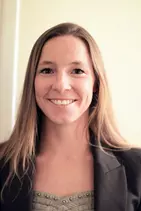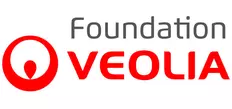The Veolia Foundation has placed its Veoliaforce experts at the disposal of Solidarités International, an NGO present in particular in Myanmar, to optimize and adapt the identified solutions to the field. Nathalie Vigneron-Larosa, a Veoliaforce volunteer who monitored the project for several weeks, explains how the project was carried out.

You undertook a Veoliaforce mission remotely, more than 8,000 km from the refugee camps in Sittwe, Myanmar. Describe how you approached the mission.
Nathalie Vigneron-Larosa: It so happens that two years ago, I worked in Veolia Environnement's Technical and Performance Department with Romain Verchère, who himself went into the field with Solidarités International. So when the Foundation called me in September 2019, the subject was not completely unknown to me - although of course I haven’t seen the reality of Myanmar for myself.
What was the mission?
NVL: This was a one-off study, estimated to last three weeks, to analyse the process and design a wastewater treatment plant where Solidarités International wanted to increase capacity. There was also an issue concerning the quality of the water discharged.
How did you organize it?
NVL: We have the advantage in the Technical and Performance Department of being fairly self-sufficient. My manager lightened my work load so that I could free up some time. This was especially important since the studies to be carried out turned out, as is often the case, to be more extensive than initially envisaged! When you start working on a topic like a wastewater treatment plant in a refugee camp, you initially feel very inadequate in terms of your skills, processes and know-how, but in the end you quickly understand the techniques employed and the challenges. The processes are rudimentary but we adapt and find solutions, often by discussing the issue with colleagues and combining our expertise.
Is it frustrating to be involved in this type of project at a distance?
NVL: No, I really liked being useful and being able to work on something so concrete while still having the comfort of having all my professional tools at my disposal and being able to continue my family life alongside. The desire to travel is naturally there, but a Veoliaforce mission at a distance is both easier to get our management to accept and it opens up the challenge to people like me with young children.
Nathalie Vigneron Larosa, 38 years old, engineer, joined the Veolia Group in 2007. She works on projects related to water treatment processes.



